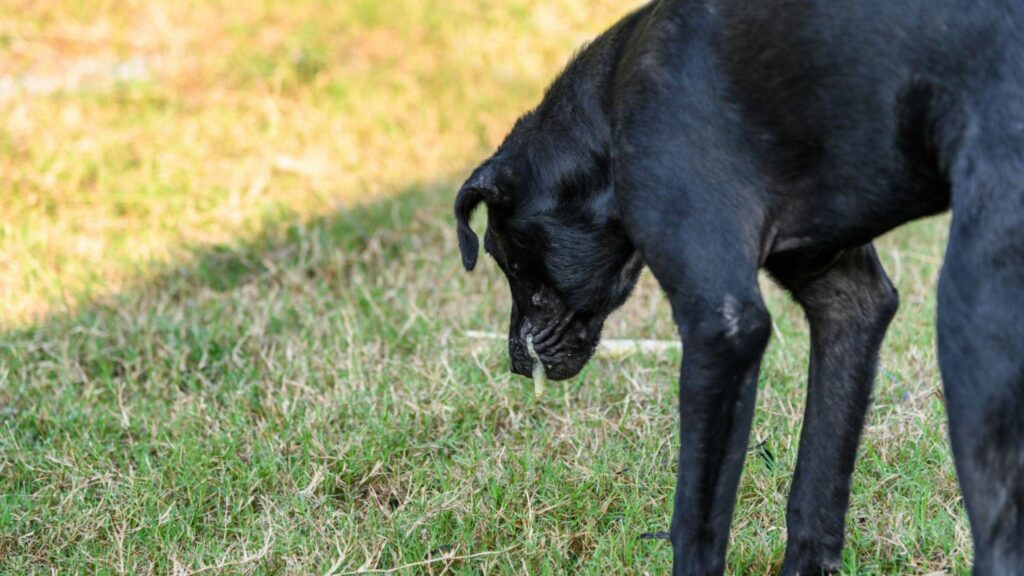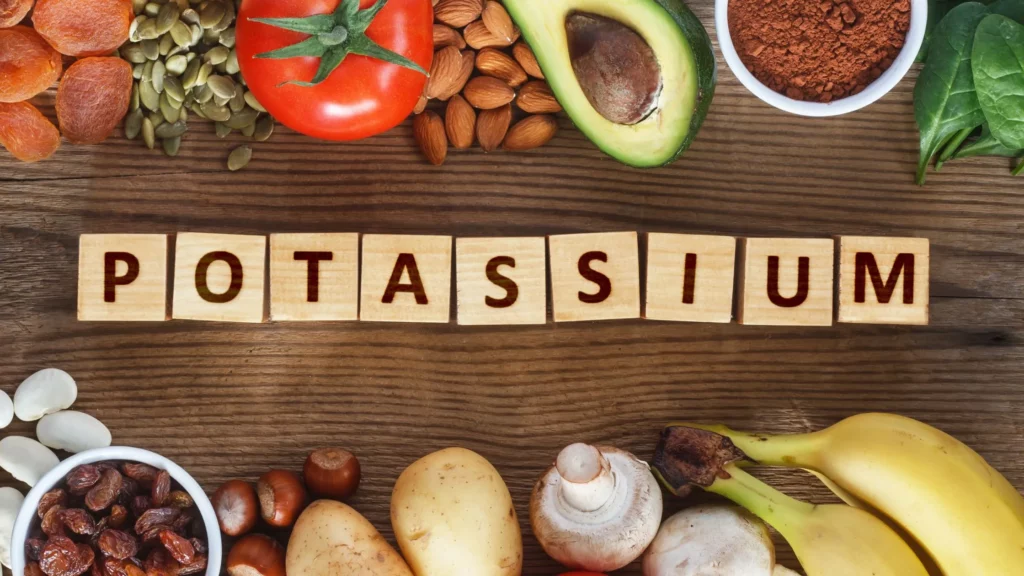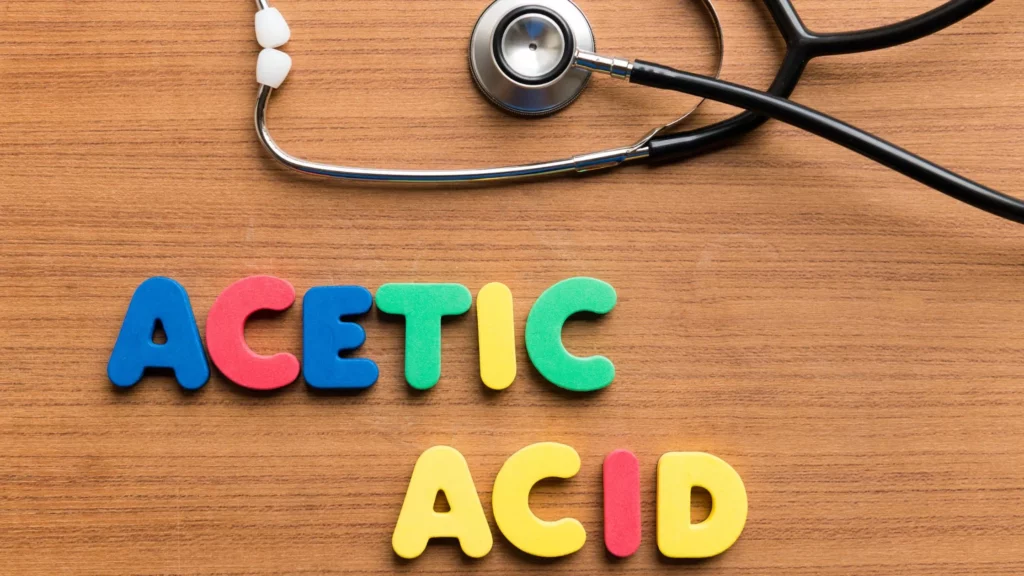Dogs are great friends and are part of many households. One of the challenges of having a dog is keeping them safe and healthy while providing them with proper nutrition.
Unfortunately, some foods are dangerous for dogs to eat. Sometimes, a dog eating the wrong thing can even be fatal. The most common of these are acids.
If a dog eats an acid, there is potential for problems such as vomiting and diarrhea.
Vomiting and diarrhea can lead to dehydration in dogs and, in more severe cases, even death.
Dogs cannot sweat, so they regulate their body temperature and lose fluids through their mouth and paws.
What Is Acid Poisoning In Dogs?
While we often hear about the dangers of ingesting toxic substances such as pesticides or poisonous plants, other substances are dangerous for dogs, including acids.
When dogs consume acids, it can cause toxicity in their bodies, leading to issues like burns in the mouth, esophagus, and stomach, and even death in extreme cases.
Some acids that dogs should never ingest include hydrochloric acid, sulfuric acid, and nitric acid.

Hydrochloric acid is a common acid that is used in many industrial processes, as well as in cleaning products.
Sulfuric acid is used in various industrial processes and is often used to produce fertilizer.
Nitric acid is a common acid used in the manufacturing of fertilizers and in the production of chemicals, dyes, and pharmaceuticals.
What Are Some Common Acids?
The most common acids are citric acid, ascorbic acid, lactic acid, and gluconic acid. These acids are found in various foods, including strawberries, oranges, lemons, apples, and tomatoes.

Dogs can metabolize these acids so that they won’t pose a problem.
Other acids, however, can be dangerous. Generally, acids found in cleaning products and commercial food preservatives are dangerous for dogs.
When Can Dogs Eat Acids?
While there are instances when dogs can eat raw steak, they don’t need to worry too much, but if dogs eat acids, it is dangerous, and they should be used sparingly and under the recommendation of a veterinarian..

For instance, dogs with pancreatitis or a weakened immune system may benefit from a small amount of ascorbic acid.
Too much, however, can cause diarrhea and other gastrointestinal problems. Likewise, acids used as food additives should be avoided unless a veterinarian recommends a particular supplement.
What Are The Side Effects Of A Dog Eating An Acid?
In many cases, the side effects of acid are limited to intestinal issues and a loss of appetite.
On the other hand, the side effects of a dog overeating acid can be much more severe.
Acids that contain lead, for example, can cause tremors and convulsions. In extreme cases, a dog could even go into shock and die.
Potassium Bromate
Potassium bromate is a common additive in commercial bread products.
While it is an effective additive for increasing volume, it is also known to cause gastrointestinal issues in humans, including abdominal pain and diarrhea.

For dogs, potassium bromate can cause even more severe side effects.
One study found that dogs who ate commercial food containing potassium bromate developed severe kidney issues.
Lead Acetate
Acid is commonly used to preserve meats. While this can be an effective way to prevent the growth of bacteria, it can also be dangerous for dogs.

Lead acetate, for instance, is commonly used to preserve meats. It can cause serious side effects, including neurological issues, ataxia (loss of muscle control), and seizures.
Calcium Sulfate
Calcium sulphate is often used in commercial bread and animal feed.

While it is not explicitly considered an acid, it can have similar effects on dogs as other additives. For instance, calcium sulphate can cause gastrointestinal issues and nutritional deficiencies, especially in puppies.
Why Are There Dangers In Giving A Dog An Acid?
There are dangers in giving a dog an acid because it can cause damage to the digestive system.
There have been cases when dogs overate orange rind and had to have their gallbladders removed because it was so swollen and full of acid.
A dog overeating lemon can cause indigestion and ulcerated stomach lining.
Potential Problems Caused By Feeding An Acid To A Dog
In cases where a dog eats an acid, there is potential for problems such as vomiting and diarrhea.
While this may seem harmless, vomiting and diarrhea can lead to dehydration in dogs and, in more severe cases, even death.
Dogs cannot sweat, so they regulate their body temperature and lose fluids through their mouth and paws. If they become dehydrated, they can overheat and, in some cases, even die.
Causes Of Acid Reflux In Dogs?
The term acid reflux refers to the substance that is regurgitated from the stomach into the esophagus. A person suffers from acid reflux often because the valve that separates the stomach from the esophagus is not closing correctly.
This can lead to stomach acid and food matter flowing back into the esophagus. In dogs, acid reflux is sometimes referred to as gastric reflux disease and is caused by various factors.

Some dogs suffer from acid reflux because of excessive gas in the stomach, which causes the stomach to press up against the esophagus and cause it to open and allow stomach acid to flow back up.
Other dogs have anatomical issues that cause the stomach to push back up into the esophagus, like a shorter esophagus or a more extended stomach. The two most common causes are consuming large amounts of food at once or consuming food that is too rich or greasy.
Medications for Acid Reflux In Dogs

If a dog has been diagnosed with acid reflux, a variety of medications can be used to treat it. The type of medication used will depend on the severity of the condition. Some common medications for treating acid reflux in dogs include:
Diagnosis of Acid Reflux In Dogs
If a dog shows signs of acid reflux, there are a few different ways a veterinarian may diagnose the condition. Some standard methods for diagnosing acid reflux include:
Treatment of Acid Reflux In Dogs

The best way to treat acid reflux in dogs is to identify the condition’s underlying cause. Once the cause of the dog’s acid reflux has been identified, a veterinarian will likely suggest ways to treat the cause of the condition and the symptoms. Some common ways to treat acid reflux include:
Summing It Up
Dogs are curious creatures who will eat just about anything, like bees, but not all the things they like to eat are good for them.
When it comes to acids, these should never be fed to a dog because of the potential side effects they may cause.
When a dog consumes acids, it can cause toxicity in their bodies, leading to several issues, such as burns in the mouth, esophagus, and stomach, and even death in extreme cases.
There are a variety of different acids that dogs should never ingest, including hydrochloric acid, sulfuric acid, and nitric acid. If your dog has been diagnosed with acid reflux, there are a variety of ways that it can be treated.
The best way to treat acid reflux is to identify the underlying cause of the condition and treat that and the symptoms.






